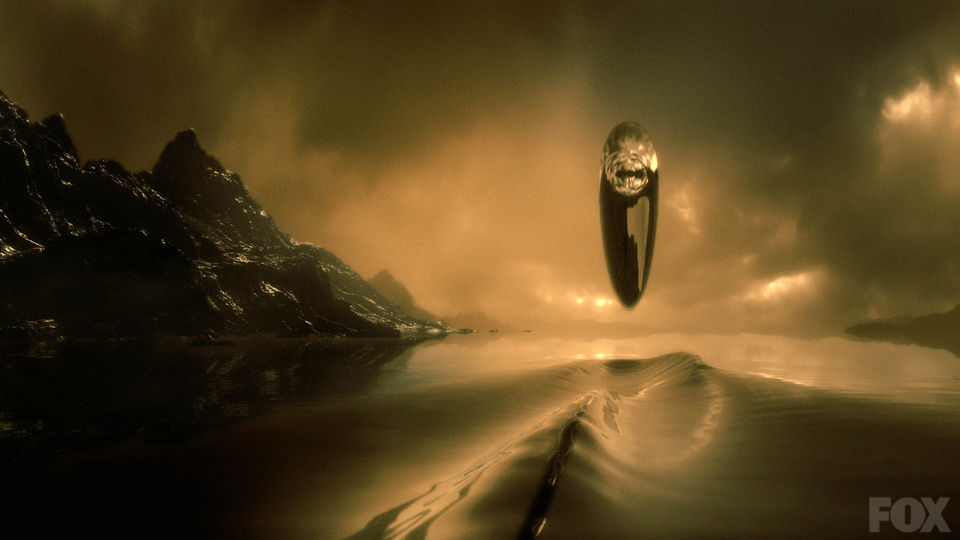June 14, 2014 12:27 pm
Cosmic Queries becomes COSMOS Queries this Sunday!

The Ship of the Imagination explores Saturn’s giant moon, Titan. From the COSMOS episode, “Some of the Things That Molecules Do”. Credit: FOX
Normally, for Cosmic Queries, we tell you when we’re going to be recording a show on a specific topic, and you send us your questions for Neil deGrasse Tyson, or a guest host like Bill Nye, or Dr. David Grinspoon, or Dr. Amy Mainzer.
But we didn’t need to ask you to send us your questions about COSMOS: A Spacetime Odyssey. From the premier episode to the last, when you saw something on the show that you wanted explained further, you came to our website to ask them.
And you know what? We’re glad that you did. We got so many questions about the show, in fact, that Neil asked back Dr. Steven Soter, astrophysicist and co-writer of both the new COSMOS on FOX and the original, hosted by Carl Sagan on PBS.
I’ve said this before, and I’ll say it again: you asked some great questions. I’ve had more than one teacher growing up who told me they could tell the intelligence of a person by the kind of questions they asked. By that measure, StarTalk Radio has a pretty smart audience.
And our audience starts young. Take 9-year-old Zoe Vales, who asked not one, but two questions, and ended her email with this quote: “That’s all I have for now, but you’ll be hearing more from me. Thanks for your time! Sincerely, Zoe.”
Thanks to Zoe, you’ll find out why meteors the size of blueberries look so big as they burn up in our atmosphere, and why nature adores a vacuum.
COSMOS covered the entire universe, and so do your questions. In Sunday night’s episode, you’ll learn about singularities and subatomic particles, general relativity and quantum physics, black holes, x-rays and accretion disks, dark matter and Dyson Spheres (and aliens!), the expansion of space and the eventual death of cosmology. Neil explains the formation of the Moon, the Nebular Hypothesis and the Cosmic Distance Ladder and how light years are calculated. Neil and Steven discuss how we can be sure the “earliest galaxies we discover” really are the earliest to be formed, and why there seem to be discrepancies in the way the Ship of the Imagination interacted with different planetary atmospheres in the show.
You’ll also find out why Neil tries not to invest emotions in the universe, and why comic co-host Chuck Nice’s 8th Grade teacher would be jealous of him today.
One last thing: sometimes, when some of you read a blog post about an upcoming episode of Cosmic Queries, you ask us questions in the hope of having them answered on that week’s show. Please note that by the time I’ve written this blog post, the show has been recorded, edited and produced – and, without a real Ship of the Imagination (StarTalk Radio has an infinitesimal budget compared to FOX), we have no ability to travel back in time to answer them on the show.
Cosmic Queries: COSMOS with Steven Soter will be available this Sunday night, June 15, (Happy Father’s Day) starting at 7:00 PM ET on our website and within mere moments on iTunes, SoundCloud, Stitcher and TuneIn.
That’s it for now. Keep Looking Up!
–Jeffrey Simons
Get the most out of StarTalk!
Ad-Free Audio Downloads
Ad-Free Video Episodes
Stickers & Mugs
Live Streams with Neil
Priority Cosmic Queries
Early-Access Videos
Learn the Meaning of Life
...and much more

 Become a Patron
Become a Patron

